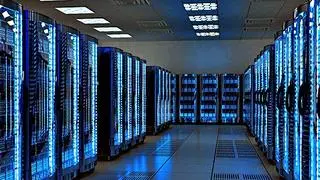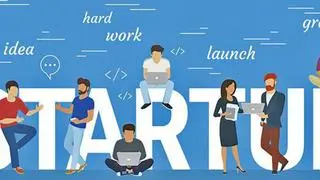N Madhavan
Having started his career in 1970, L Lakshman, Chairman Emeritus of the ₹4,300 crore Rane group, has experienced first-hand the rapid transformation of the Indian economy, from the rigid control era to a highly globalised one. In the process, he has built an institution that is known for its values, culture and quality. As he retires after five long decades in business, he recalls his journey in this conversation with
BusinessLine . Excerpts:
How has the business environment evolved in the last 50 years?
In the early 1970s, when I had started, it was all about the management of the supply side. Licence to manufacture, importation of raw materials and power shortages. It was more about who you knew in Delhi at that time, and the customers always got the short shrift. Disruptions to supply chains were frequent and quality issues were galore.
Things however changed in the mid-80s, with the launch of Maruti. The quantitative constraints on the industry were removed and the volumes started going up. Of course, the big bang was in the early 1990s, when economic reforms were ushered in and India liberalised and globalised in one go.
Focus shifted to managing the demand side of the equation. International competition, challenging quality standards, uninterrupted supply and production, and high engineering standards became the new norms. Looking back, had liberalisation come in earlier, we would have been a much stronger country and industry with strong local brands.
You were responsible for the transition of Rane group from being a family-owned-promoter-run organisation, to a family-owned-professionally-run set-up. How was the experience?
There comes a time when the entrepreneur finds himself unequal to the breadth and depth of the task at hand. Increase in volumes and customer demands for a range of competencies which often render professionalisation as an imperative. When we found the right people for our jobs, it kind of energised the organisation and we could move forward like a well-oiled machine, with all the parts carrying out their designated functions.
In the early 2000s, post the ‘big bang’ of reforms, we even had to redefine customer-centricity. Now this called for greater engineering, greater skills in purchase, planning, after-sales servicing, and a whole new set of competencies as well. Organisations had to be redesigned, and professionalisation was a large measure to do with survival as well as self-interest. I am proud and happy to think that Rane did take all the right measures back in the day, and we have never looked back.
You were one of the earliest entrepreneurs in the country to start the quality journey..
The very protected Indian industry had developed skills that mostly focussed on the supply side. Purchasing, and general administration were the competencies that were at premium. Product quality was almost incidental and despite that there were customer queues at our plants. Globalisation changed the rules of the game.
Multinational companies like Hyundai and Ford were at India’s doorsteps with their own suppliers. The message clearly was “shape up or ship out”.
And it was during these tumultuous times that we launched our TQM (Total Quality Management) journey. We drew lessons from the Japanese — they had conquered the world with their low costs and high quality. Very early learnings from their lessons were that total quality evolves from three things — customer-centricity, employee involvement, and fact-based decision-making. We converted the TQM practice in Rane into a movement. Within a couple of years, Rane Brake Linings competed for the Deming Prize, which it won in 2003. The morale and motivation went sky high, and we felt that we were equal to the best in the world. People felt empowered, and this set in motion a virtuous circle of learning and improvements, across all our companies.
How has this transformed the group?
In the year 2000, our defects were at 100,000-150,000 parts per million. Today, it averages around 50. We then felt sufficiently confident enough to look for export opportunities. Today, exports constitute about 23 per cent of the group’s sales with customers such as BMW, Volkswagen, Ford, Hyundai and so on. So basically, we have come a long way from where we were in the year 2000 when exports constituted less than three per cent of our total sales.
While Rane as a group aggressively built competencies internally, it remained conservative when it came to grabbing growth opportunities...
You are right. Rane as a business house had very modest beginnings. I mean, when I joined Rane in 1970, we were a ₹3-crore business, across three product lines. Our resources were limited and stretched. And there was also this desire to keep it as a family-managed and owned business. So, conservatism came to us naturally. However, having said that, in those days, the industry margins and Rane’s margins were quite high.
So when I look back, I believe there was a case to shed our conservatism a notch or two. Perhaps, we could have added another product or two to our basket. But, looking ahead, as the industry grows, the appetite for capital will grow, and I assume this will bring about more attitudinal changes in the Indian industry, and it will bring in increased divergence in ownership and management. So, step-by-step, I think we, at Rane, will shed our conservatism as a result of market forces.
Is Rane looking at taking advantage of the shifting of manufacturing capacities away from China?
Yes. We are constantly looking forward to opportunities to broad-base our business, based on export models. We are also looking for a new portfolio of products. But ultimately, what would give me satisfaction is not just the mere export of products and services, but the creation of intellectual property within India. Ultimately, the world is going to be ruled by knowledge and not just GDP, so that is an opportunity that we should not miss.
India’s track record until now when it comes to the creation of intellectual property has not been great. At Rane, we have registered a few patents in the last few years.
But if you ask me if it has significant commercial value, I think not. But the pride of registering IPRs itself is a great driving force. As far as the nation is concerned, frankly, either at a state-level or a national level, or preferably both, there must be a passion to become national champions.
You have built Rane into a value-based organisation. How important are culture and values and do you think their importance has changed over the years?
I would define culture as a set of organisational perspectives and practices. With the socio-economic changes that we see in the digital age, culture has to change with time. Like an organism, it must adapt and meet the ever-changing expectations of the newer generations. And yet, preserve its richness. Good culture helps an organisation become an institution.
Values, however, run deeper than that. The founding principles of an enduring organisation is based on its values, as you would agree.
Stakeholders come to view values as a prime asset of a business. Openness, transparency, ethics, and principle-based governance are the characteristics of a value-based organisation. And I believe that culture will and must undergo changes. But underlying values will remain the same. Dharma , for instance, has not undergone any changes for thousands of years.
What advice will you give to a future entrepreneur?
From my experience in an Indian context, I feel like there is a greater need to move towards data-based decision-making, and this is at all levels. A greater investment in R&D, although the Indian business policy environment is not conducive or supportive of R&D unlike China which seems to be so focussed on it, is also a must. It would also help to shed our conservatism, although it depends on the financial capacities and the margins and so forth.
On hindsight, is there something you would have done differently?
Of course, I think a life without regrets would be too dull and sterile. I would have launched TQM much earlier, which would have facilitated a much more holistic, and faster growth for Rane. I would have committed more resources into R&D, although commercially we may have nothing to show for, but in terms of our debts, we would have been much deeper. And then finally perhaps, shed our conservatism a notch or two.








Comments
Comments have to be in English, and in full sentences. They cannot be abusive or personal. Please abide by our community guidelines for posting your comments.
We have migrated to a new commenting platform. If you are already a registered user of TheHindu Businessline and logged in, you may continue to engage with our articles. If you do not have an account please register and login to post comments. Users can access their older comments by logging into their accounts on Vuukle.